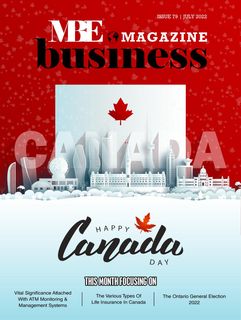The city of OTTAWA Canadians can expect interest rates to climb even more as according to the Bank of Canada said Wednesday after announcing a new supersized interest rate increase.
The central bank raised its key interest rate by 3 quarters of a percentage point, and indicated that this isn’t the final time in its fight against rising inflation.
The rate increase that came after a complete percent increase from July was exactly what experts had predicted and lifted the bank’s rate goal to 3.25 percent. The rate hike will affect other loans rates which will make it more costly for Canadians and companies to take out money.
As a debate has been brewing over whether this is the final interest rate increase of this year The Bank of Canada was clear that further increases are required to bring inflation down to the two percent target.
“Given the prospects for inflation the governing council is still of the opinion that the interest rate should increase further,” the bank said in its announcement.
“As the effect of a tighter monetary policy work throughout the economy, we’ll be looking at how high interest rates must be in order to bring inflation to its target.”
TD the chief economics Beata Caranci said the Bank of Canada’s announcement indicates that the bank believes it is necessary to take further action in order to keep inflation down.
“The idea that they believe they need to continue going higher indicates that they’re not cooling the economy enough to reduce inflation,” Caranci said.
TD has now predicted that its forecast for the Bank of Canada will take its main interest rate to 4 percent.
The experts in economics are often concerned that the full impact of interest rate increases on the economy will take time to be realized. Caranci noted that it’s harder to predict what the impact from these interest rate hikes will be since there’s not much experience from the past with the rate hikes like this one.
“I think that many economists are very nervous about the speed with the rate they’re increasing interest rates. It’s one of the most rapid rate hike cycles in the history of our country,” Caranci said.
The decision on Wednesday marks the fifth straight interest rate hike this year that pushes the bank’s benchmark rate to the top of what they call”neutral” range “neutral interval” that is between 2 and 3 percent.
If rate hikes lead to recession, Caranci said that the central bank may head in the opposite direction, and begin the process of reducing interest rates.
In the rate announcement it was announced that the Bank of Canada said global inflation is still high due to disruptions to supply chains across the globe and the impact of COVID-19 as well as the war in Ukraine.
In the United States, the bank noted that the economy is operating with “excess need.”
The Bank of Canada, along with central banks across the world, is increasing interest rates in an attempt to reduce the soaring inflation after cutting its key rate to close-to-zero when the pandemic began.
Inflation climbed initially in part because central banks across the globe were implementing simultaneous policies right at the beginning of the pandemic. William Robson, CEO of the C.D. Howe Institute. In the present, as they work together to curb inflation The risk is to the opposite side.
“All of central banks are moving towards becoming less restrictive” stated Robson. “If economies across the globe begin to weaken significantly in the same period and that, in my opinion increases the likelihood of recession.”
CIBC was anticipating that the rate hike on Wednesday would be the last in the calendar, modified its prediction following the announcement of the rate to reflect a second increase in October.
“The BoC appears ready to sacrifice more growth than we anticipated in order to bring inflation falling quicker pace,” CIBC chief economist Avery Shenfield wrote in a note.
Canada’s year-over year inflation percentage was 7.6 percent in July, which was down from 8.1 percent in June, as the cost of gas decreased.
However, the bank states that its most important measures of inflation that tend to be more stable and more stable, continue to rise as short-term inflation expectations remain high.
“The longer this trend continues more likely is that the increased inflation is ensconced,” the Bank of Canada stated in its news release.
Central banks are often concerned when businesses and people anticipate inflation to stay high, as it could lead to the self-fulfilling prophecy that businesses increase their prices in the future and workers negotiate wages to keep pace to their expectation of inflation.
The Bank of Canada expects the economy to slow down during the second quarter of this year, as the global economy slows and the higher interest rates slow economic growth within Canada.
The bank has said that it is adding interest rate increases with the continued tightening of the quantitative policy.


